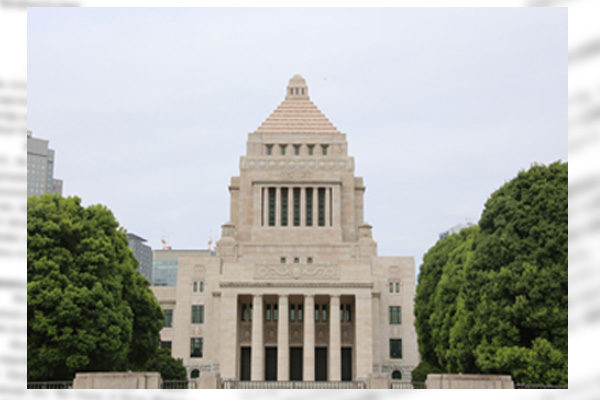Since the presidential election of the ruling Liberal Democratic Party two years ago, Prime Minister Fumio Kishida has reiterated his pledge to amend the constitution during his term as LDP president. His first term will be over in one year at the end of September 2024. If the constitution is to be amended by September 2024, the National Diet, or parliament, will need to propose specific amendments at its ordinary session in the first half of next year for a national referendum. To this end, the Diet will have to draft specific amendments at its extraordinary session this autumn.
Promising agreement on parliamentary term extension and emergency decrees
Among constitutional amendments, the LDP and the Japan Innovation Party are almost agreeing on an amendment to specify Japan’s possession of the Self-Defense Forces. However, the LDP’s junior coalition partner Komeito party and the Democratic Party for the People, though having begun to indicate their positive stance on the SDF-related amendment, are likely to take more time before agreeing with the LDP and the Japan Innovation Party on the matter. The four parties compose a pro-amendment force that occupies two-thirds majority of the Diet necessary for proposing any constitutional amendment.
Meanwhile, a consensus is being reached among the four parties on an amendment to extend the term of office for Diet members in the event of an emergency. The amendment would allow the extension when an emergency such as a large-scale natural disaster occurs just after the dissolution of the House of Representatives or just before the expiration of the term, making it difficult to hold an appropriate general election.
However, a situation in which the Diet cannot extend the term of office, let alone even convene, is a true emergency. What is necessary in such situation is the issuance of emergency decrees by the cabinet.
This year marks the 100th anniversary of the Great Kanto Earthquake on September 1, 1923, which devastated Tokyo and forced the then Imperial Diet to be unable to convene for legislative actions for three months until December 11.
Therefore, the legislative function of the parliament was assumed by emergency imperial decrees under Article 8 of the Imperial Constitution. The then Gonbei Yamamoto cabinet took measures such as food procurement, price control, debt repayment moratoriums and tax exemptions to relieve afflicted people. In September 1923 alone, 12 emergency imperial decrees were issued, and two emergency fiscal measures were taken under Article 70 of the constitution.
If that is the case, it is essential to prepare for a situation in which the Diet cannot convene due to a major earthquake occurring just beneath the Tokyo metropolitan area, which has a 70% probability of occurring within the next 30 years, so that we can maintain the legislative function and protect the lives and livelihoods of the people.
On emergency cabinet decrees, the three parties other than Komeito have almost agreed. Komeito has hinted at its intention to accept emergency cabinet decrees as specified in law, indicating that the four parties may be able to agree on a specific constitutional amendment on the matter. The LDP, the Japan Innovation Party, and the Democratic Party for the People have proposals to allow the cabinet to issue emergency decrees based on law, instead of empowering the cabinet unconditionally to issue emergency decrees.
Kishida must make a decision and take an action
Prime Minister Kishida, whose approval ratings are sluggish, has tackled nationally important agendas such as having counterstrike capabilities, substantially increasing defense spending, and constructing new nuclear power plants. He seems to be self-confident as indicated by his remark that “I have done what former Prime Minister Shinzo Abe could not do,” as reported by the Asahi Shimbun newspaper on July 23.
That is a good argument. Next, Kishida should realize constitutional amendments, which will become more realistic depending on a prime minister's decision, within his term as promised. If he can do that, it will not be a dream to carve his name in history as a great prime minister who opened a hole in the constitution imposed by the occupation forces after World War II.
Akira Momochi is a director of the Japan Institute for National Fundamentals and a visiting professor at Kokushikan University.


